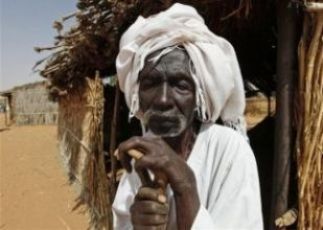African Union undermined Darfur peace process – rebels
May 5, 2010 (PARIS) — The peace process has been weakened by the African Union and negative interference s of the international community, said the spokesperson of the rebel Justice and Equality Movement (JEM).

Ahmed Hussein Adam said the peace process in Doha has been turned to a tribune for political maneuvering in a way to present the Sudanese President as peace lover seeking to resolve Darfur conflict peacefully. “But in fact Khartoum does not desist from the military option and does not want to deal with the root causes of the conflict but simply seek to absorb rebels within the regime of the National Congress Party”
“The mediation led by Mr. Djbril Bassole has been weakened because he does not have the support of the African Union. Mr. Jean Ping Chairperson of the AU Commission who has strong relation with the Sudanese president and he seeks to protect Omer Al-Bashir. This is why the AU lost its strength in Darfur,” he said.
The rebel official added they appreciate the approach and the method of the Joint Chief Mediator but Ping attempted to use the former South African President Thabo Mbeki to debilitate Bassole and impede his efforts to end the conflict and increase the suffering of Darfur civilians.
The Doha process is seen as the first serious attempt to end the seven year conflict since the failure of Abuja peace talks in May 2006. The main rebel groups had been refusing to take part in different rounds of talks organized by the former mediation team.
Ahmed, speaking to Sudan Tribune in an interview in Paris, also criticized the role of the US envoy Mr. Scott Gration who has different approach from the joint mediator and affected negatively his role, he said.
“Gration sought quick fix to the conflict and impacted negatively Bassole’s assignment and his approach,” Ahmed emphasized.
He also pinpointed to the Arab League interferences and the competition between Qatar and Egypt to play a leading role in the peace process. Besides, the Chinese and Russian support to the Sudanese government at the level of the UN Security Council.
“All these factors paralyzed the mediation and weakened it. Also these shortcomings left the mediation without clear strategy,” Ahmed said.
Since last April, Sudanese government and JEM rebels traded accusations of violating the truce they agreed in the framework accord. JEM says Khartoum wants to reduce its military capabilities, while the Sudanese army sometimes denies and in other occasions says JEM has to station its troops in four positions they agreed.
The rebel official said Khartoum was the winner of this difficult and complex situation, as it has ignored the implementation of the two agreements they signed in Doha: the good will agreement and the framework agreement.
“Last year they had agreed to improve the humanitarian situation in Darfur and they did exactly the opposed when they kicked out the 13 aid groups from Darfur. Now they signed the cessation of hostility and they are attacking us every day even today they clashed with our troops,” he said.
LACK OF INTERNATIONAL SUPPORT
Ahmed said the lack of international support for the Doha process hampered the whole process.
“The Sudanese government realized that the mediation does not have strong international support and turned the peace process to an operation of public relations but further imposed successfully some groups and made it part of the peace process.”
Ahmed was alluding to the Liberation and Justice Movement led by a former governor of Darfur province who had been initially approached by the Libyan government to lead a coalition of rebel factions. El-Tijani El-Sissi, who belongs to Darfur largest tribe of Fur, is also accused of having contacts with the Sudanese government.
COMPREHENSIVE APPROACH
The rebel official further stressed on the need to reform the peace process; sponsored by the oil rich Qatar in order to reach a lasting and comprehensive peace in Sudan.
“Unless there is a genuine reform of the whole process, the Doha peace talks will fail. Therefore the international community needs to reassess the process and change the way it deals with the problem of Darfur,”
Ahmed said the international community has to find a comprehensive approach to help the Sudanese to find a strategic solution for the Sudanese problems including Darfur conflict adding “partial and tribal solutions would not be successful”.
He also said that focusing efforts on the Southern Sudan referendum would lead to more complications in the future accusing Khartoum of rigging the election, launching large scale military operation on JEM, and seeking to pass a fictitious peace agreement in Doha with a rebel group.
Ahmed said they decided to freeze their participation in the peace talks hoping to reach such strategic and political solution; also they want all the concerned parties deal seriously with the political process to end the conflict.
“But if things continue as they are now with no political horizon all the option will be open to defend civilians and to achieve the aspirations of Darfurians,” he concluded.
(ST)
